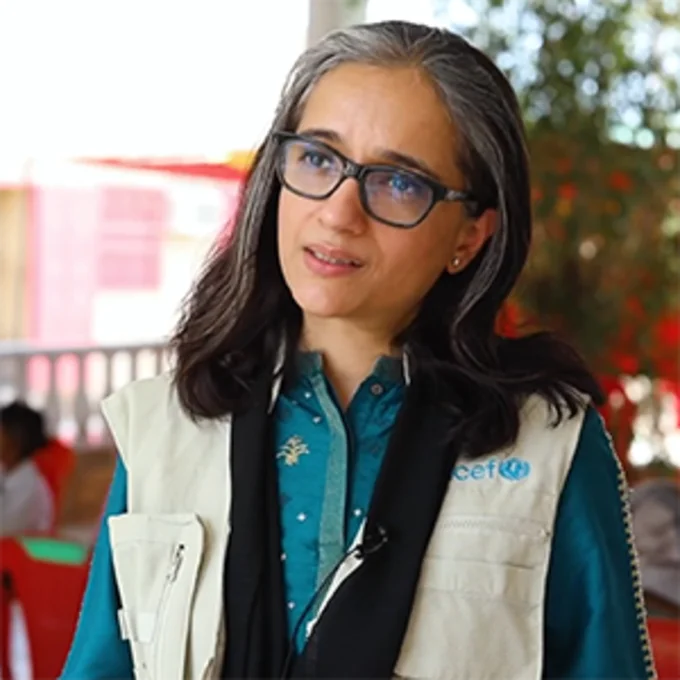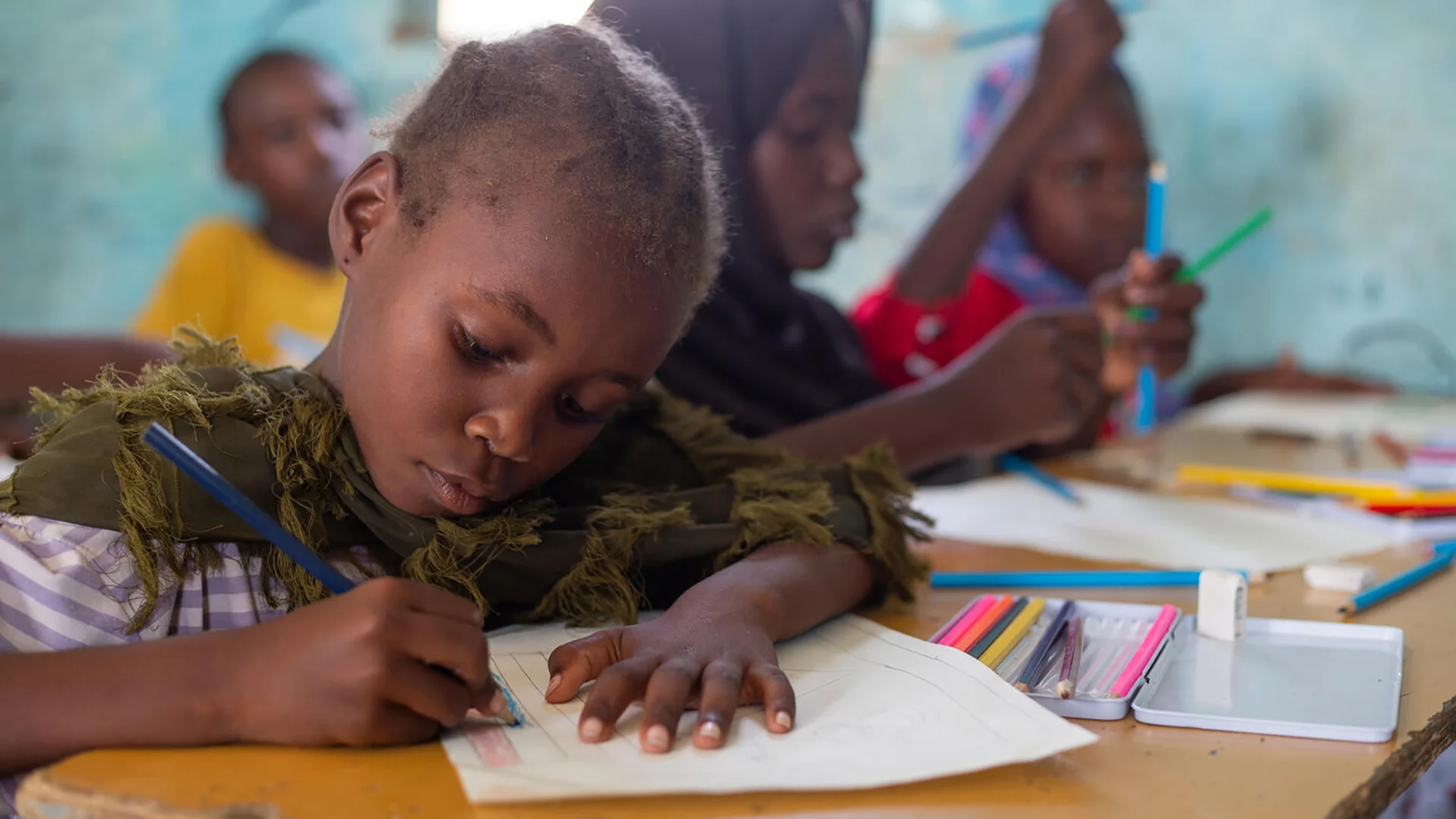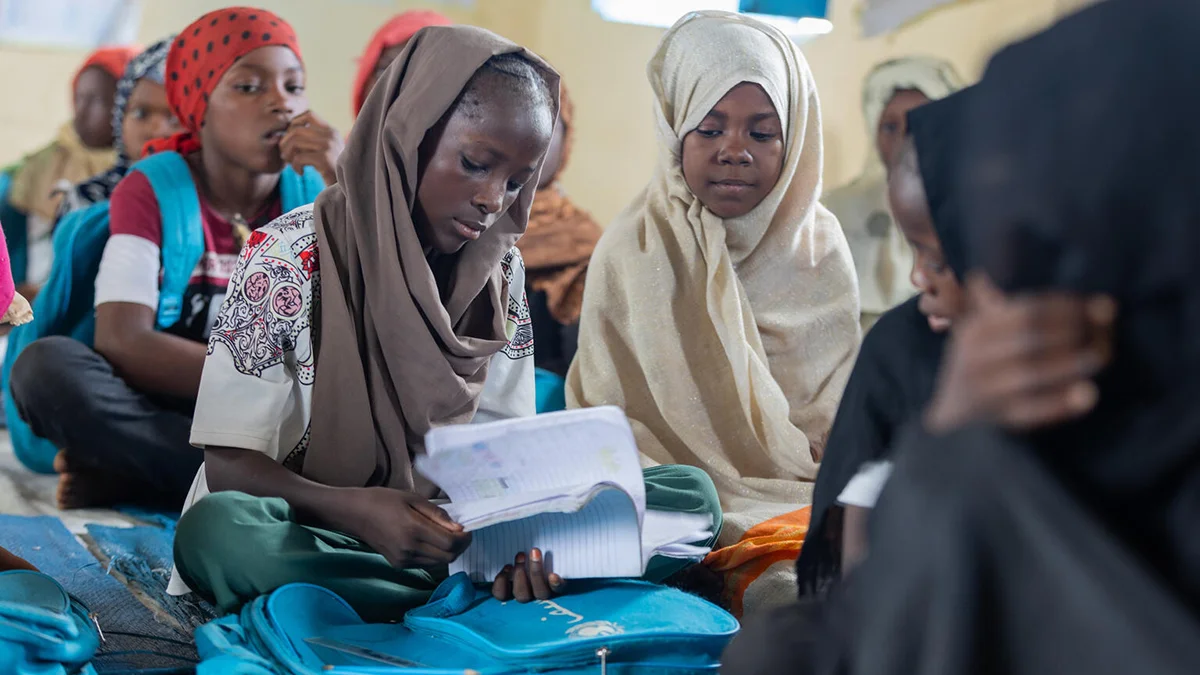Children in Switzerland and Liechtenstein are heading back to school after the summer break. But with children of preschool and secondary school age worldwide, one in five still has no access to education.
In 2023, 250 million children aged 6 to 18 could not go to school. The reasons are myriad, but the main driver of this lack of educational opportunity is poverty. 64 million of the world’s children do not even attend elementary school. Girls and children with disabilities are especially disadvantaged when it comes to education.
And attending class does not guarantee learning. Many schoolchildren have insufficiently trained teachers, inadequate materials and makeshift, overcrowded classrooms that make learning nearly impossible.
Help us in giving the most disadvantaged children support in this global crisis.
The global education crisis: Sudan
After more than a year of war, the educational system in Sudan is facing collapse. 18 million children have been unable to attend school. Even before the fighting began in April 2023, almost seven million children in Sudan did not attend school. The current conflict has massively exacerbated the already precarious situation for children.

“Sudan is on the brink of becoming home to the worst education crisis in the world, threatening the future of an entire generation.”
Since January 2024, UNICEF and its partners have been able to provide educational programs to over 1.7 million children in Sudan. UNICEF also helped schools in several regions reopen safely and provided them with funding and school materials. Since the beginning of the year, it has also created 699 safe learning spaces for over 238,000 children (51% girls).
One of these children is 11-year-old Rabha, who had to flee her home in Khartoum because of the violence there. In the UNICEF-supported October North safe learning space in the eastern part of the country, Rabha learned to read, write and count for the first time in her life. “In Khartoum I didn’t have a bag. I only had a wooden board and a wooden stick-like pen. But when I came here, I learned to write in notebooks and on the blackboard as well,” says Rabha. For many children in Sudan, UNICEF-supported safe learning spaces are the only way to get an education.
How your donation helps
Access to education must be ensured for all children – in Sudan and worldwide. UNICEF is working so that no child is excluded from the educational system because of gender, disability, poverty or ethnic background. UNICEF trains teachers and provides schoolchildren worldwide with learning materials, bringing education within reach for children in remote regions. In conflict regions or after natural disasters, temporary learning spaces are set up to allow children to attend school even in emergency situations. UNICEF is one of the largest providers of educational assistance for children and young people during humanitarian emergencies.
We must not allow the aid measures and progress made over the past decades to be reversed. Because schools are more than just places of learning. In these difficult times, they are a safe haven for children – a place with clean water and food.

